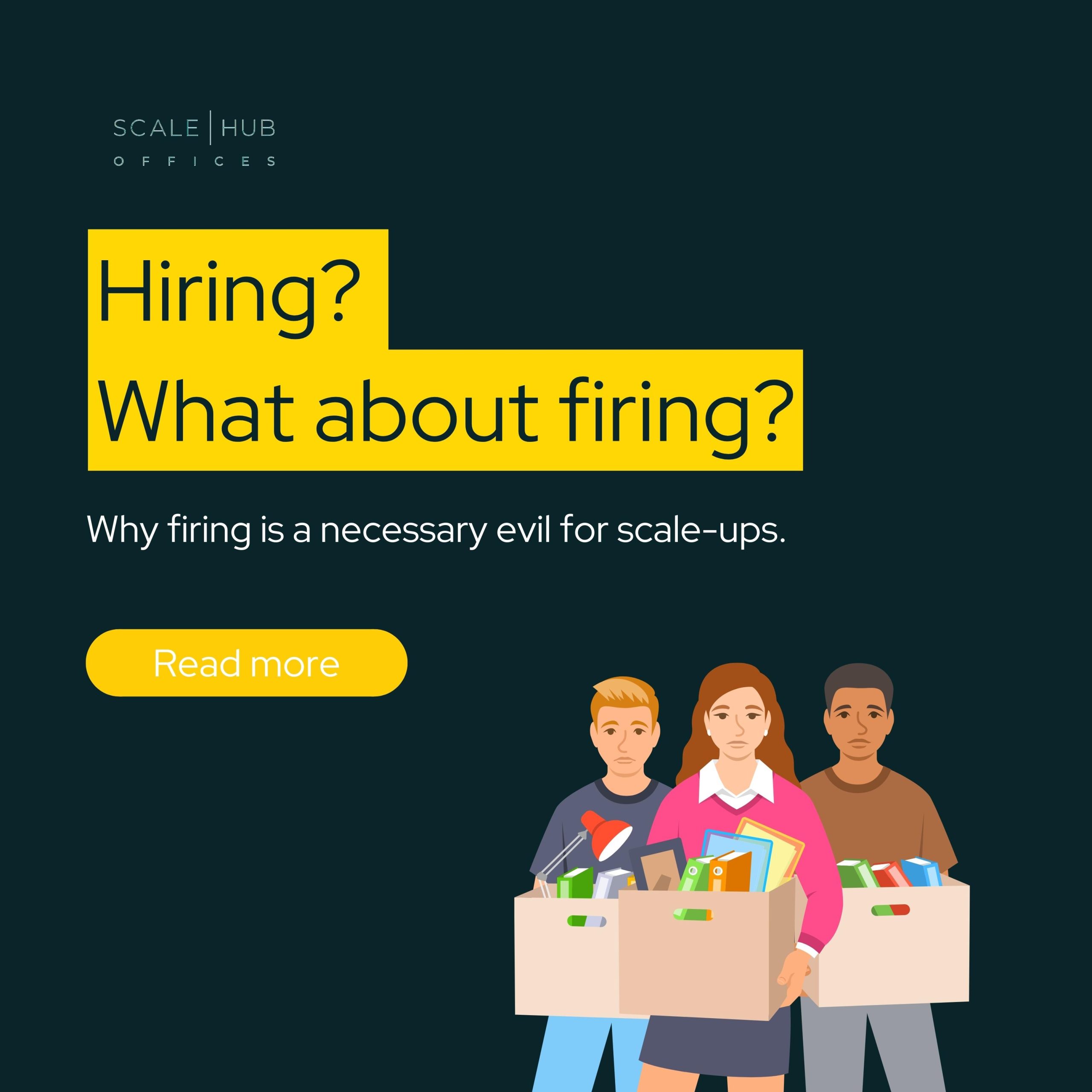
I’d rather have a hole in my team, than an asshole in my team. Does this remark by Dan Jacobs, Head of Talent at Apple, hit home for you? Read on.
The uncomfortable truth of building a team, is the inevitable moment when ways will part again, with some – or lots of – hurt on at least one side. And in some cases, that inevitable moment should be sooner than you would like to face that dreaded conversation.
The big break up
There’s many reasons why an employee may leave the company. One reason that will probably go down with the existing generations: retirement after a lifelong career at one and the same company. A much more likely break-up scenario: Resign or get fired.
Although being laid off is both a source of fear and power – depending on which side you’re on – resignation is now fast becoming a powerful tool for employees.
The “classic” reasons to resign, out of discontentment with the current state of affairs: not enough career opportunities provided, not a high enough salary or an insurmountable dispute. More new age: being head hunted, taking a sabbatical, a strict 10 year career plan, craving new excitement, going solo.
Combine the war for talent with a shortage of workers and a pandemic, and whole new factors come into play: too much commuting, too much pressure or workload, not a nice-enough office, not enough employee benefits/perks or simply not enough fun. Being commanded to come to the office for a fixed number of (or all) work days – instead of working from home or wherever one might choose – has vastly become another game changer.
So when everyone is in a fight to find and keep employees, you must be crazy to fire employees right? Having gone to great lengths to find them in the first place. Especially those in higher positions. You do everything you can to keep them right?
Escape the fire
The story of shortage of talent and workers, is also a way to tell ourselves we don’t have to face the awful truth that sometimes someone is not, or no longer*, fit for the job.
(* “No longer” doesn’t mean that one has gotten too old, but the company may have grown fast, to a level that exceeds their competences. And sure, it’s nicer to find a new position for them; it may feel like getting fired all the same.)
Firing is not a very popular tactic. But how about embracing its importance and appreciating the courage to fire someone if they are in fact not the right fit? And that’s it, the “in fact”. Because it’s not science. Science helps, but working with people, emotions are always involved and play an important role. That and knowing the right people.
No one likes to be the person that fired someone. People get hurt, reputations get hurt, ego’s get hurt. And the deed itself is intensely awkward. Also it will cost you. You won’t know just how fast you will find a replacement. So you just wait it out: they just need more time to grow into their position right? No one in the team likes them but they know so much! It’s obvious this isn’t working, but they will quit themselves right? Eventually?
Hold your fire?
Waiting – even if it is until you find someone new – may not be a good idea. Not if it means that in the meantime a lot of damage is done. Or if your workplace is turning toxic.
It may not look good on you to have a hole in your team, or it may be difficult to admit you actually hired (or promoted) someone who turns out to do the job poorly/not as good as you expected them to, or doesn’t match with the rest of the team or company whatsoever or even turns out to be an actual “asshole” – although calling someone by this name wouldn’t do much good for your company culture either.
Well, you are looking at your second expensive mistake. The first one was hiring them, the second one is keeping them on. Policies delayed are policies denied.
Double the effort, none of the reward
When negativity enters the organization and gets the chance to be embedded, think of how much damage control you will have to do to turn things back to the way they were before. It will ask for double the effort, and what for? No loss of face? There’s simply nothing that can be gained from it, apart from not hurting someone’s feelings and escaping the awkward moment.
Teamwork is a big deal in a scale-up. You don’t want employees doubting their leaders and feel unsupported by not seeing any action taken when it’s clear to everyone that something needs to happen.
So fire quickly when you know it’s the right thing to do. We all fuck up. The person on the other end deserves it too; they may be great somewhere else.
It doesn’t have to be fun
Firing is no fun. You don’t need to develop into liking it, you don’t need to develop it as a habit, it’s no muscle you need to exercise. It is what it is: painful but necessary.
When you realize that both parties will eventually grow and profit from the decision, it may be less of a hurdle. Even the “asshole” from Dan Jacobs’ quote we started this piece with, probably isn’t an asshole given the right position and place.
Don’t watch the money, energy and spirit leak out of your business, when it could be invested in finding and hiring a right fit.
Firing hurts, but not firing may well be pain without gain. Rip off the band-aid.
—-
There’s good news! You can avoid having to fire too much people: hire the right ones! We wrote a piece about it: Hiring in a growing company.



